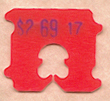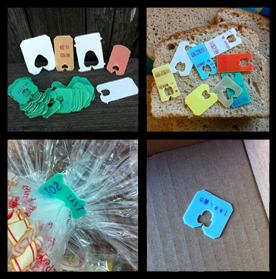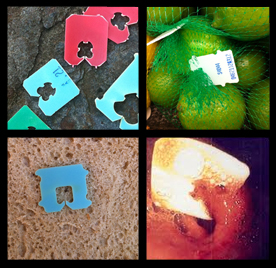
Occlupanids are generally found as parasitoids on bagged pastries in supermarkets, hardware stores, and other large commercial establishments. Their fascinating and complex life cycle is unfortunately severely under-researched. What is known is that they take nourishment from the plastic sacs that surround the bagged product, not the product itself, as was previously thought. Notable exceptions to this habit are those living off rubber bands and on analog watch hands.
In most species, they often situate themselves toward the center of the plastic bag, holding in the contents. This leads to speculation that the relationship may be more symbiotic than purely parasitic.

Their stunning diversity and mysterious habits have entranced many a respectable scientist into studying, collecting, and cataloging specimens late into the night.
This site contains several years of research in the classification of occlupanids. For those of you who do not consume sliced bread, occlupanids do not form an important part of your life. For the rest of the world, These small objects are everywhere, dotting supermarket aisles and sidewalks with an impressive array of form and color.

The Holotypic Occlupanid Research Group has taken on the mantle of classifying this most common, yet most puzzling, member of phylum Plasticae.